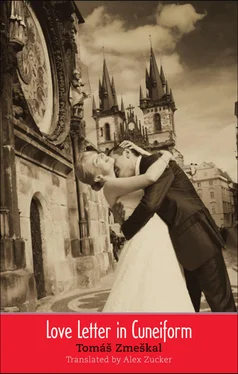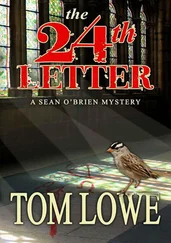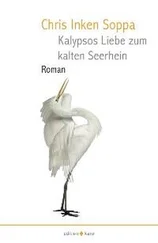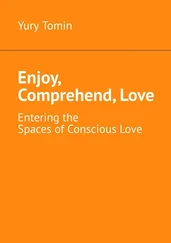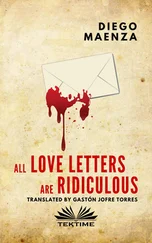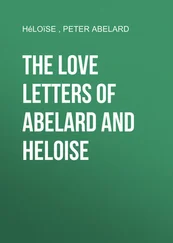My daughter had lost a baby I didn’t even know existed, and Kryštof had lost a little brother or sister without even knowing it. I managed to get them all to Prague. Josef changed the lock on the apartment so Maximilian couldn’t get in, then went knocking on all the tenants’ doors to ask them to replace their locks, and I reported my son-in-law to the police. Josef, meanwhile, stayed with Alice in our old apartment, and little Kryštof seemed quite happy to have him there, although after a few days he started asking why Daddy had hurt Mommy so much, and I wrote a letter to the priest who married them to tell him what Maximilian had done and to warn him that if he dared come anywhere near my daughter I would kill him with my own two hands, but he just wrote back something about God and forgiveness and how it wasn’t his place to judge the sins of God’s children, which according to him was everyone under the sun. What else should I have expected from a priest who’d never had a child, I realized afterwards. I had to write him, though, since Maximilian had disappeared off the face of the earth. He wasn’t at work or at his friends’ or anywhere else, but I had a feeling, based on what little I was able to get out of Alice, that he had another woman somewhere. Every afternoon I went to the hospital to see Alice and to the apartment to see Kryštof and Josef and brought them all lunch, and as quietly and unobtrusively as I could, I paid close attention to my husband and discovered the poor thing could barely hear at all anymore without that little device in his ear. Toník went to visit too, but it was such a deathly atmosphere there I probably would have fallen apart if Toník hadn’t prescribed me some pills. Finally one day Aunt Anna noticed that I was going out regularly and said she wanted to come along and, besides, I needed to get some sleep. I didn’t object. She wanted to go, so I took her with me. It was a hassle dragging her from one side of Prague to the other, what with all the buses and trams, but we did it. As soon as we got there she started chatting away with Josef, she, who couldn’t even remember the name of the person she had just spoken to. The batteries were running low in Josef’s device, and Kryštof couldn’t stop laughing listening to the two of them, confused about who they were talking to and what they were saying. When Josef realized Aunt Anna was calling him a different name every minute, he thought it was funny too, and then she started to laugh as well, and afterwards, when we got home and she heard the clock in the living room chime, she said, “I’ve spent ages looking for that thing. You should’ve told me it was there,” and then, “Next week let’s all go to the zoo. They’re bringing in a new elephant. That child of yours will love it.” I told her Alice was too big for that sort of thing now, but she said she meant Kryštof, so instead of trying to explain I just nodded my head.
After a long time passed without my hearing any word about what was going on with my bastard son-in-law, I went to the police, but they told me the case had been dropped. When I asked why, the officer looked at his papers and said, “Your daughter was here and she said to stop the whole thing.” I got angry and said they had two doctor’s reports or assessments, or whatever they were called, and I didn’t agree, but the policeman said I wasn’t there when it happened, and besides it was none of my business, since I wasn’t even a witness, and my daughter, who was a direct participant — he actually said that: participant , which means he believed she had been beaten — didn’t want to testify. So then I got really angry and said, “So, what, was he supposed to cripple or kill her? Isn’t it enough that the lousy creep gave her a miscarriage?” The officer gave me a sad look. “It’s always hard with cases of domestic violence, ma’am,” he said. He looked around a moment, pulled out a glass, filled it with water from the tap, put it in front of me, and said he understood me, but he didn’t understand at all, so I realized I’d better leave. When I talked to Alice about it that evening, she said it wouldn’t fix anything anyway. “Do you really want me to have my son’s dad locked up?” she asked. I didn’t answer and left to go see Aunt Anna, who looked at me and said, “Květa, if you’re not careful, you’re going to turn completely gray.” The fact that she didn’t mix up my name caught me totally off guard. In fact I was so bowled over I burst into tears again later that night as I was flipping through an old album of black-and-white photographs, trying to figure out who was who in our unhappy family.
I thought I was going to see Josef more often during the six months he was in Prague, especially after Alice came home from the hospital. Actually, I didn’t think it, I wished it. But he went back to the cottage in Lhotka in the spring. When he was here in Prague, in our old apartment with Alice and Kryštof, I suddenly realized that I still loved him. It was different now than thirty years ago, obviously. We weren’t going to concerts together anymore, and he avoided me. Every so often I went out to Lhotka to visit Alice and Kryštof. After the disaster with Maximilian, Josef had stopped objecting, so I could do that now. He put up with me. I scoured Prague in search of batteries for his hearing aid and left them on the shelf above his collection of gramophone records. He didn’t say anything, but when his ran out, he took them. I know — I counted them. And one day I caught him in the act of some poorly hidden affection. I had gone mushrooming out in the woods with Kryštof and it started raining, so I wrapped him in my raincoat, but I got soaked to the bone. When we got back and I sat down in the kitchen next to the stove, Josef brought me a towel and made me some grog. I didn’t even want to drink it. I just wanted to save it. Then he brought me two aspirin, and I took one, but the other tablet I still have tucked away in a small inlaid box that Josef bought me on vacation once, ages ago, and now it’s my secret sentimental aspirin.
(2)
Květa couldn’t persuade her daughter to have Maximilian’s assault investigated, so that, as Květa said, they would put him away where he’d be out of decent people’s hair. In return for Alice’s not pressing charges, Maximilian agreed to an immediate divorce. Josef lived at the cottage in Lhotka and sometimes Květa would drive out there to spend the weekend with Alice and Kryštof. Once, she arrived unannounced, on her own and full of hope, only to have Josef declare before she even made it past the entryway that he urgently needed to go to Prague. She spent two days at the cottage by herself, feeling so profoundly alone that she vowed never to do that again. She didn’t try to find out whether Josef was telling the truth. It was irrelevant. Going through old clothes in the closets. Throwing away old newspapers and magazines. Finding old strawflowers, which every year Josef forgot to replace with new ones, in the most inappropriate parts of the house. Doing all this enclosed her in a secluded shell of silence and concentrated solitude. The only walk she permitted herself was a trip to the garden restaurant and the cemetery, and even that she didn’t do until after the last train from Prague had arrived, so she could be sure Josef wouldn’t show up any sooner than the next morning. He didn’t show up at all. She walked up and down the one long street in Lhotka several times, greeting the neighbors and then returning to the cottage. It wasn’t easy going back to an empty house, especially knowing that the person she had come to see had left it because of her.
As Kryštof got older, Josef became more adventurous, taking him on trips to see steeplechases, castles, greyhound races, flooded quarries, twice by train to the Baltic Sea in Poland, once to the Adriatic Sea in Yugoslavia, the Markéta motorcycle speedway in the Břevnov section of Prague, hockey games, soccer, and all the while carefully monitoring Kryštof’s movie theater attendance to make sure he saw at least one Western a week, which Kryštof then had to recount to him in its entirety. But what gave him the greatest pleasure were the trips they took together. Josef became an expert in timetables, with a meticulousness unique to him. He created his own system of symbols and abbreviations for train station pubs and restaurants, which he jotted down in his notebook. Even the tiniest snack bar received a detailed evaluation, along with its frankfurters, sausages, kielbasas, and various types of potato salad. There was one thing Josef was adamant about: children, unlike adults, needed to eat regularly. At the same time, however, he also believed that Kryštof should be able to eat what he liked, not what his mother and grandmother thought was good for him. In the event that they ever happened to travel the same route twice, they knew exactly where to find a meal — they knew which place had tolerable potato salad and which place it would cause stomach cramps, so it was better to go with the kielbasa or meatloaf instead — thereby eliminating the need to waste precious time buying groceries. In summer they slept in youth hostels; in winter, being at the whim of the weather, they traveled less often. School was no problem for Kryštof. Josef imbued him with so much knowledge of math, chemistry, and physics that he didn’t even realize he was learning most of the time. Occasionally it irritated Alice that her son spent more time at the cottage than at home, and she never did understand what he loved so much about being in that poorly heated house. When Kryštof was nine, Josef decided he deserved his own room. When he was eleven, Josef decided the one he had was too small and he needed to build him a new one in the attic. The two of them completed the job in under four months. When Kryštof was thirteen, Josef’s only regular contact with Prague came in the mediated form of his grandson taking a bundle of dirty laundry from Lhotka to Prague with him every week and bringing it back clean, ironed, mended, and patched. It gave Alice the feeling she knew what was going on with her son and her father. It wasn’t entirely true, since sometimes they went on long trips that she had no idea about. They once spent a whole week in Slovakia without her knowing it. They stayed with a friend of Josef’s who had written to him that a bear had been spotted walking around the village and if they came they might get lucky and see it. The bear didn’t show its face all week, but they did see a lynx, which was enough to satisfy them. Kryštof had a relatively large number of absences from school, but given that he was generally a good student and that his grandfather attended parent-teacher meetings, there was no reason for concern.
Читать дальше
